Reading Time: 3 minutes
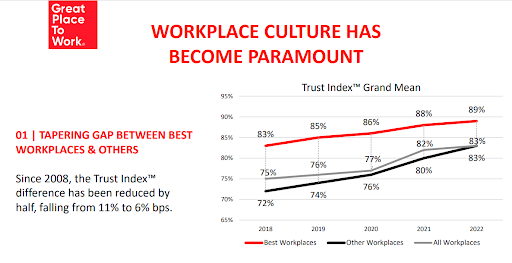
The year 2022 witnessed significant transformations in the way we work. With the world gradually recovering from the global pandemic, organizations across various industries had to adapt to new challenges and redefine their workplace culture. As we move forward into the future, it becomes crucial to identify the key shifts in workplace culture that have emerged and will continue to shape the professional landscape. In this article, we will explore the five essential shifts we observed in 2022 with respect to workplace culture.
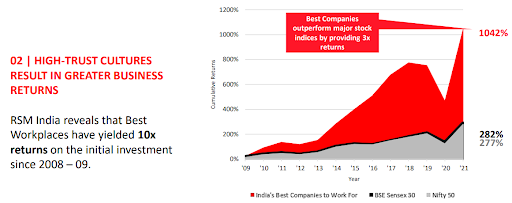
Hybrid Work Environments
The pandemic accelerated the adoption of remote work, and this trend is here to stay. In 2022, organizations increasingly embraced hybrid work models that combined remote and in-person work. This shift gave employees greater flexibility and autonomy, allowing them to balance their personal and professional lives more effectively. Companies will also invest in technologies and infrastructure to support seamless collaboration among distributed teams. However, maintaining a cohesive company culture in a hybrid work environment will become a significant challenge. Organizations must focus on fostering strong communication channels, building trust, and creating opportunities for meaningful interactions to ensure employees feel connected and engaged, regardless of their physical location.
Emphasis on Well-being
The pandemic has underscored the importance of employee well-being. Since 2022 and beyond, workplace culture will prioritize the holistic well-being of employees, including physical, mental, and emotional health. Companies will invest in initiatives that promote work-life balance, offer mental health support, and encourage regular breaks. Flexible working hours and wellness programs will become integral parts of the workplace culture. Employers understand that a healthy and happy workforce increases productivity, reduces burnout, and improves retention rates.
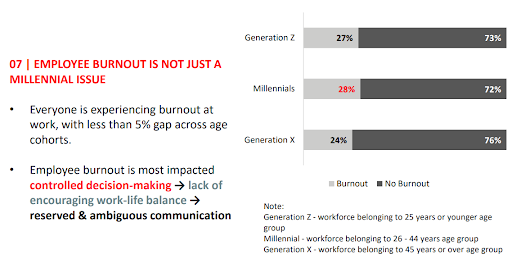

Diversity, Equity, and Inclusion (DEI)
In recent years, there has been a growing recognition of the importance of diversity, equity, and inclusion in the workplace. In 2023, this focus on DEI will intensify, with organizations making concerted efforts to create inclusive environments where every employee feels valued and heard. Diversity will be prioritized not only in terms of race and gender but also in terms of diverse perspectives, experiences, and backgrounds. Companies will implement unbiased hiring practices, offer diversity training, and establish employee resource groups to foster a sense of belonging. The shift towards DEI will be a moral and business imperative, as diverse teams have been proven to drive innovation and better decision-making.
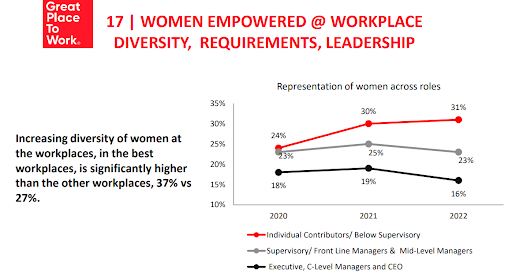
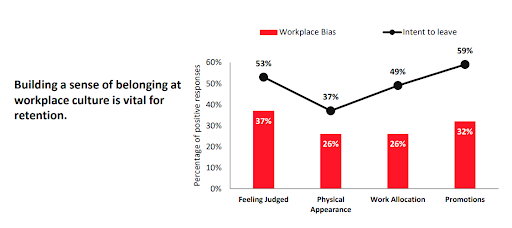
Remote Onboarding and Employee Experience
With remote work becoming more prevalent, organizations will revamp their onboarding processes to cater to virtual environments. Remote onboarding programs will be designed to help new employees feel connected, understand company values and goals, and establish relationships with colleagues. Companies will invest in digital tools and platforms facilitating remote collaboration, communication, and knowledge sharing. Moreover, organizations will strive to provide a positive and inclusive employee experience, irrespective of the physical location. This will involve regular check-ins, mentorship programs, virtual team-building activities, and continuous feedback mechanisms.
Learning and Development Opportunities
Continuous learning and development have always been critical to professional growth, but in 2023 and beyond, they will take center stage in workplace culture. Organizations will prioritize providing opportunities for employees to upskill and reskill in response to rapidly evolving technologies and job requirements. This may involve offering online learning platforms, mentorship programs, and educational allowances. By investing in the development of their workforce, companies will not only empower employees but also foster a culture of innovation and adaptability.
In conclusion, workplace culture is undergoing a transformative shift since 2022 and beyond. The rise of hybrid work environments, emphasis on employee well-being, focus on diversity, equity, and inclusion, remote onboarding, and learning and development opportunities are essential shifts shaping the future of work. These changes reflect a broader understanding of the importance of creating inclusive, flexible, and supportive work environments that prioritize the well-being and growth of employees.
As we look ahead, it is clear that the future workplace will be a dynamic and ever-evolving space. Organizations that embrace these essential shifts in workplace culture will be better equipped to attract top talent, foster employee engagement, and drive innovation. Adapting and responding to these changes will be crucial for businesses to thrive in the post-pandemic era. Our Trust IndexTM Survey can help you understand where your organization stands regarding the ever-evolving workplace culture.





